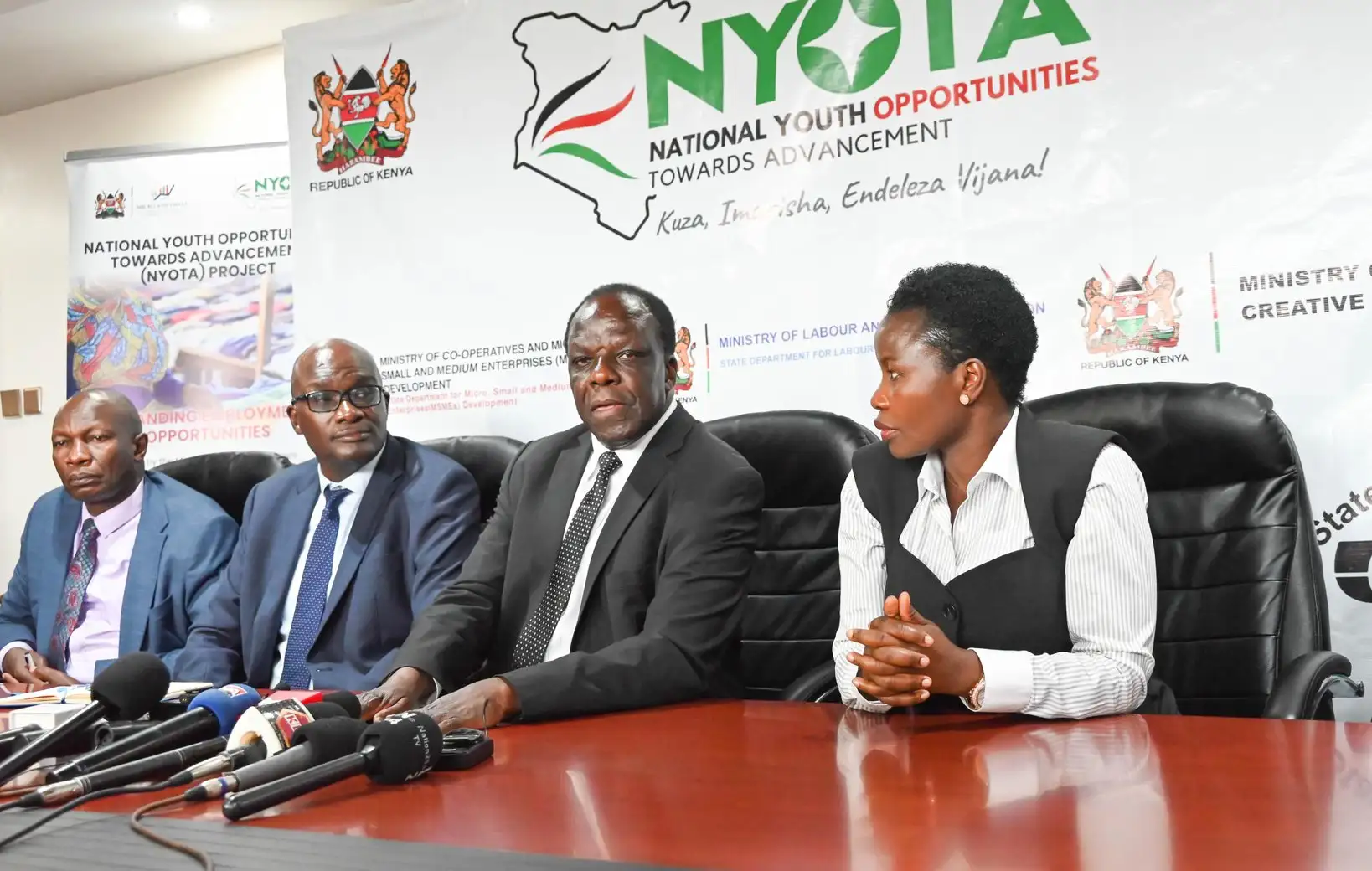The Kenyan government has rolled out a new nationwide programme aimed at tackling youth unemployment through grants and skills training. Known as the National Youth Opportunities Towards Advancement (NYOTA) Fund, the initiative promises to equip thousands of young Kenyans with the resources to start small businesses and build sustainable livelihoods.
Unveiled under the Kenya Kwanza administration, the five-year project will offer KSh50,000 in startup capital to eligible youth across all 47 counties. The government says it hopes to reach at least 100,000 beneficiaries, focusing on those aged 18 to 29 with a secondary school education or lower — particularly those from vulnerable urban and rural areas.
“We are building a nation where every young person has a fair shot at success,” President William Ruto said during the launch. “NYOTA will help our youth not only find work but create it.”
A Partnership Backed by the World Bank
The World Bank is the main financier of the NYOTA Fund, working alongside several Kenyan ministries and agencies. Key partners include the Ministry of Youth Affairs, the Ministry of Cooperatives and MSMEs, the National Social Security Fund (NSSF), and the National Industrial Training Authority (NITA).
According to Cooperatives Cabinet Secretary Wycliffe Oparanya, applicants must attend an in-person validation exercise on Friday, October 24, 2025, to qualify. “This is a transparent process to ensure only genuine applicants benefit,” he said.
Eligible participants will need to present their National ID cards, while persons with disabilities must bring disability identification cards for verification.
More Than Grants: Building Skills and Savings
The programme aims to go beyond job creation. It seeks to build economic resilience by closing skills gaps and providing access to capital — two key challenges facing young Kenyans.
Under the plan, up to 600,000 youths will receive training on Access to Government Procurement Opportunities (AGPO), while an additional 90,000 will undergo specialised technical training to prepare them for employment or self-employment.
To encourage saving habits, beneficiaries will be required to save 12 per cent of half their grant. Female participants who save an extra KSh400 per month for four consecutive months will qualify for a KSh16,000 maternity benefit, a move officials say promotes financial inclusion for young women.
Tracking Progress and Accountability
According to Susan Mang’eni, the Principal Secretary for the State Department of Micro, Small, and Medium Enterprises Development, all grant recipients will undergo business assessments every two months to track their growth.
Before receiving the funds, participants will also complete four months of business development training and an aptitude test to gauge their entrepreneurial potential.
Mang’eni said these follow-ups are meant to ensure that “the grants are not just handouts but catalysts for real economic change.”
A Broader Youth Empowerment Push
The NYOTA Fund comes at a time when Kenya’s youth unemployment rate remains among the highest in the region. Economic analysts say the project could make a meaningful difference if implemented transparently and monitored closely.
The government insists that the initiative is not a short-term fix but part of a broader effort to reshape youth engagement in the economy — from job seekers to job creators.
As one young applicant in Nairobi put it, “Fifty thousand shillings might not sound like much, but with the right skills, it could be the start of something big.”

